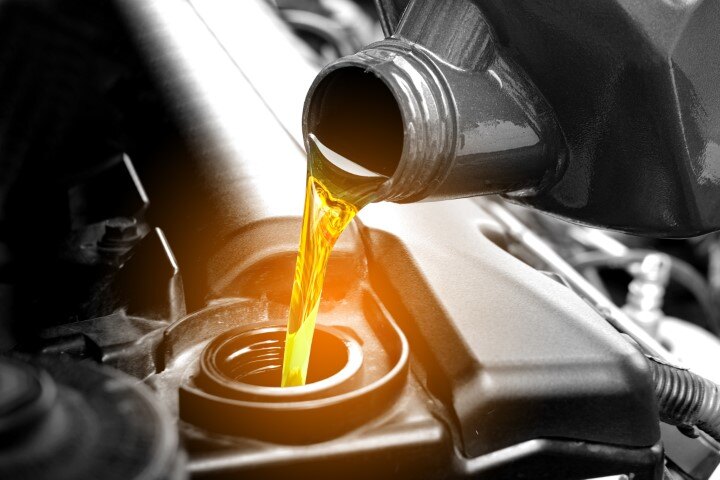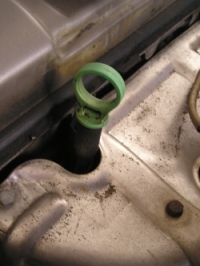How Often Should I Change My Oil?
Those who read our Healthy Oil blog series from this past year may remember the advice we gave on the critical issue of "how often should I change...

Changing your oil within the manufacturer recommendations is the single best thing you can do to maximize the working life of your car’s engine. Engine oil not only functions to reduce friction and lubricate moving parts, but it also has other important functions – it keeps dirt and soot from damaging engine parts, neutralizes acids that can otherwise cause corrosion in your engine, and it even helps dissipate heat in the engine.
 A mechanic can tell if you’ve gone too long between oil changes. They may note an unusual darkness to the oil, although used oil that is dark is not, in itself, an indicator of a problem – it should be dark if it's been run through an engine over time. The mechanic may also note unusual metallic content or other particles in the oil, and that IS a problem since it hints at the presence of “wear metals” and soot in the used oil. All signs that it may be time for a change.
A mechanic can tell if you’ve gone too long between oil changes. They may note an unusual darkness to the oil, although used oil that is dark is not, in itself, an indicator of a problem – it should be dark if it's been run through an engine over time. The mechanic may also note unusual metallic content or other particles in the oil, and that IS a problem since it hints at the presence of “wear metals” and soot in the used oil. All signs that it may be time for a change.
A lot of people, however, do not change their own oil. So it may be useful for them to know some things to watch out for which might hint at an “old oil” problem. Are there any symptoms that can point to the existence or the coming of more serious problems associated with old engine oil that needs to be changed as soon as possible? Another, simpler way to put it would be: Am I experencing old oil in car symptoms and what are the signs that I need to change my oil?
Properly-lubricated engine parts have a normal ambient noise to them. If the oil is so old that the engine is either a) excessively noisy overall, or b) revving up louder than normal on startup, then it’s a sign the oil is too old and needs to be changed. The oil may have lost some of its essential ability to lubricate the parts, and these parts are rubbing against each other in such a way that the noise level is elevated. This goes double if you hear any kind of “metallic” sounds, like ticking. That’s a sign your oil level may be low because it has gotten used up or burned over time, a problem that you’ll need to address as soon as possible.
Today’s vehicles are much cleaner than they used to be. Thanks to things like improved engine designs and catalytic convertors, a properly-running engine shouldn’t create any exhaust that you can see under normal conditions. And if the oil is in good condition, you shouldn’t see anything coming out of the tailpipe but vapor when the temperature outside is cold. So if you see anything that looks like smoke, it could be a sign that the oil is old (if it’s not a sign of a major mechanical fault like a cracked head gasket). Ditto for if you can smell any hint of burning oil in your exhaust.
If the oil is too old, it will have built up high levels of particulates that may have clogged the oil filter. A clogged oil filter will not let oil pass through as it should, and this can affect the engine’s ability to maintain consistent speed. It may not be a hard sputtering, but you should be able to notice it as you’re driving. A simple oil and filter change can go a long way towards ironing this out.

Those who read our Healthy Oil blog series from this past year may remember the advice we gave on the critical issue of "how often should I change...

Change your oil every 3 months or 3,000 miles. You hear the commercials from oil change quick-lube places repeating this. Do you really need to...

The summer driving season is expensive. More families take long trips and gas prices are highest, both because of increased demand and because...